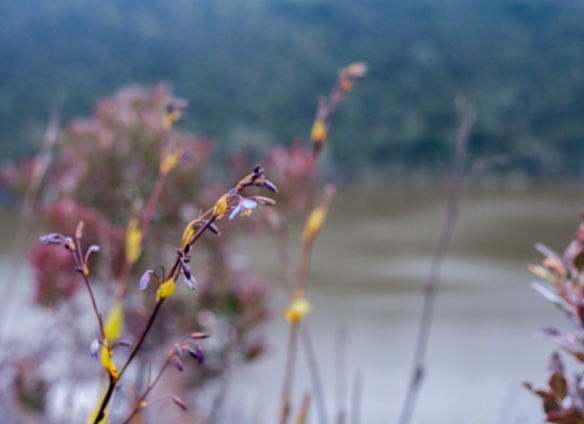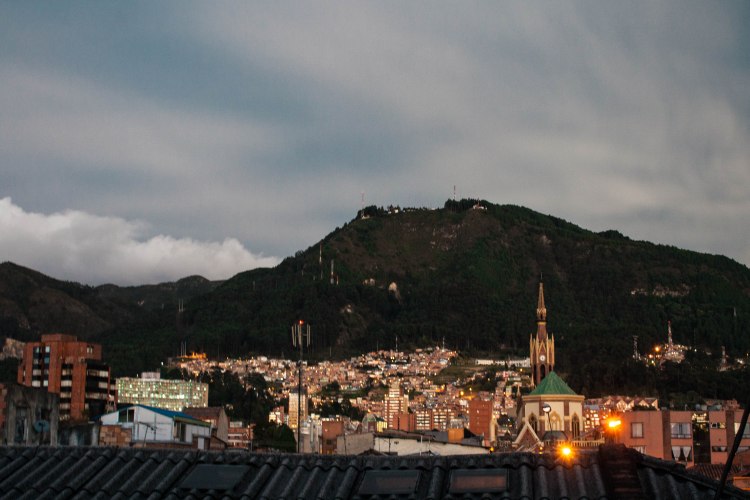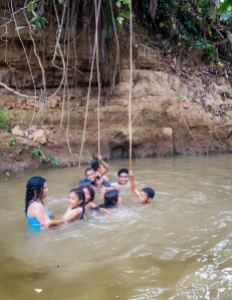
Anna Vogt is the MCC LACA Advocacy and Policy Analyst. This post was originally published on Anna’s personal blog.
One of my first memories from my orientation time in Bogota involved walking towards the MCC office on my first day in the city. As a coworker and I got closer, we ran into another MCCer on the street. She greeted us with a smile and remarked that it was easy to spot newcomers when they first arrived in the city because they always wore sandals, instead of shoes like the Bogatanos.
It was however, two months before the Seed program ended when I finally had an epiphany related to footwear. I was sitting in Bogota in restaurant, in town from the coast for some work meetings, shivering in an ugly university hoodie and sandals. I kept watching people walk by, in leather coats, boots and scarves. Suddenly it dawned on me: I was moving to Bogota, where I could get a whole new wardrobe full of beautiful clothes that would be perfect for the cool rainy days of the capital. More than anything, I would never again be judged for showing my toes in a closed shoe culture.
The last few months have been so hot and dry that people in my office have been talking about coming to work in sandals. It feels strange to think that weather can shift so drastically that Bogotanos would change their footwear. Perhaps even stranger is how thankful we are for yesterday’s rain, something that used to seem as ever present as leather boots.
Yet we have never been as thankful for rain as we are right now. It doesn’t matter that I forgot my umbrella at home or that it is no car day in the city, when rain only makes the already difficult public transportation even more challenging. Instead, we are all wishing and hoping the same thing, in a collective prayer: “Please let this be enough to put out the fire, please.”

The cerros (mountains) that encircle the city are on fire. Months of no rain and relentless sun have created ideal forest fire conditions, which finally burst into full flame this week. There have been smaller blazes throughout November and December, but nothing like this week’s fire.
The last few days have felt like I imagine the end of the world to feel like. There have been several times when I urged myself to get a grip- after all, it’s just a tiny forest fire, nothing like the ones I grew up with in the Yukon. Yet the sheer strangeness of it all: the smoke hanging over the city; the ashes dusting the bathroom floor; the unseasonably hot weather for weeks; the reports of drying rivers and dying crops throughout the country all contribute to an apocalyptic sense that doesn’t go away. Forest fires may be normal in the Yukon, but they are not normal here.
Everything is changing and the blazing cerros simply bring home to Bogota the reality of climate change; our new normal is not normal at all.

The creeks are drying up.
Here in Colombia, the government and the FARC are about to sign a peace deal to end over fifty years of conflict. This should be a year of hope, when the helicopters that flew over the Montes de Maria before a massacre are finally silenced throughout the country. Yet helicopters continue to fly over the city, this time not to bomb citizens, but to put out fires. Campesinos continue leave their land,not only because of conflict, but because their crops do not grow without rain. Children are dying, this time of thirst in the Guajira. It is not fair, especially because those most affected have the lowest carbon footprint.
I don’t want to be melodramatic, but I am worried. New decisions to control emissions were made in Paris- both Canada and Colombia made important commitments. I try not to eat much meat, just to feel like I am doing something. Even with the best case scenario, however, where we all only use solar energy and stop driving, change is already inevitable.
Of course, that doesn’t mean doing nothing- Sembrandopaz is experimenting with water farming using appropriate technology on the coast for example. Stopping unhealthy mining practices will help keep our rivers from drying up and halting corruption will ensure that more water reaches those in need.
Yet, how we approach this new time in our history depends on our willingness to embrace change, in our lifestyles, economic structures and resource sharing. How do we receive climate change refugees? Are we willing to make changes in our diets and our financial systems? It is responsible for me to fly all over the world for my job, even though I claim to do it to help others?
Can we use these moments as momentum to work together, beyond borders, to create a more sustainable and equitable world?
I hope so, because now is the only time we have. The mountains are already on fire.

